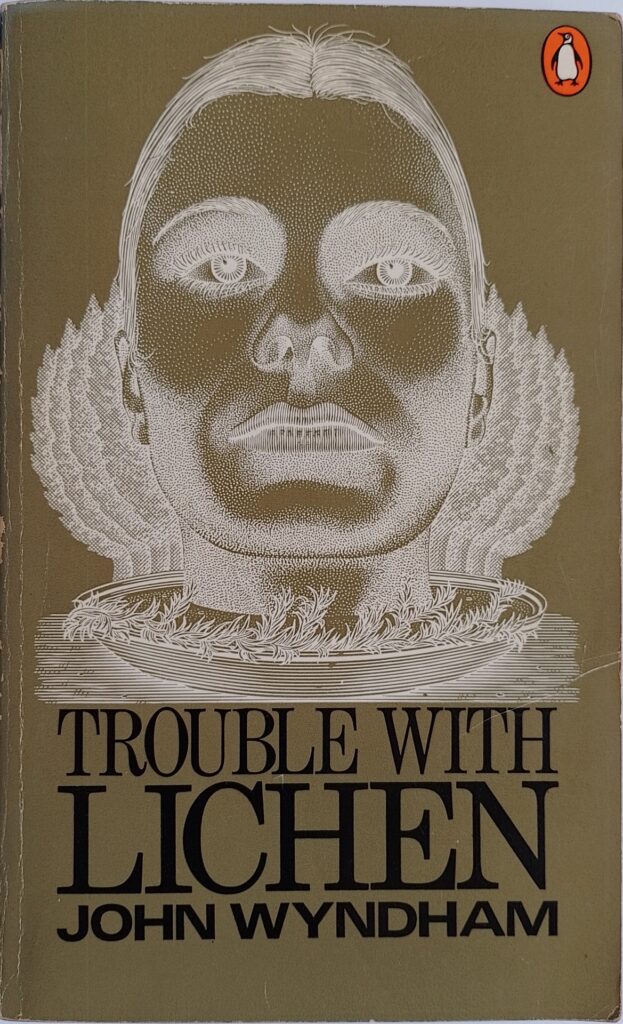First published 1960. Penguin, paperback, 1971, pp 204, c.60,000 words.
I can’t help feeling that Wyndham was a jolly nice man. His characters tend to be decent people with hearts in the right place who have got caught up in some ‘what if’ near future. The ‘what if’ here is the discovery of a rare lichen with anti-aging properties. The co-discoverers are biochemists, one of whom, a middle-aged man, owns the private research laboratory where the discovery takes place and the other is a young woman who works there. They independently investigate the properties of the lichen and stumble on its remarkable properties. They both then struggle with what to do with the discovery, in large part because the lichen only grows in very small quantities in Northern China.
The story is set in Britain, and it is a world were Britain still has some clout, especially in science. However, it could equally have been set in the United States or any other large western country. It is also the world of the Cold War and Mao’s China.
Much of the interest here comes from the exploration of what each protagonist should do. Only treat themselves? Their immediate family? Or some small wider circle? What happens when the news leaks? With such a small supply, control is going to be hugely valuable; greed will rear its head. Wyndham explores these issues in a highly entertaining way – it is not at all heavy-handed as it might well have been in other hands. His treatment is light hearted. The blurb on the back describes this as ‘one of John Wyndham’s gayest and most satirical forays into the fantastic.’ (This must be one of the last public uses the word ‘gay’ in its former sense of lively and cheerful.) The satire is mostly aimed at newspapers, but also at (British) society at large and the position of women within it.
One could read this as a feminist book. Wyndham highlights how women, at the time it was written, were largely aimed at the marriage market and housewifely rolls. Seeking independence and a career was largely frowned on. To a great extent women condoned at this state of affairs, wanting for their daughters what they had. To get on in that world, appearance was all, which leads to one of the protagonists choosing to exploit that desire for lasting beauty, but for which she has a hidden agenda.
Wyndham writes in an easy, fluid, and highly accessible style. He has a light touch, and the structure of the novel bowls along seamlessly. The ending was perhaps a little perfunctory and slightly implausibly wrapped up.
The three elements, the position of women, the consequences if life could suddenly be greatly extended, and providing an entertaining read, are seamlessly worked together. The issue of life extension is one of profound consequence: it could be treated in much greater depth than here, but that is (presumably) not Wyndham’s aim. He is providing an entertaining read, and by-the-way introducing some topics that we should all consider. Fortunately, today the position of women in most places is far improved from what it was when this was written. It was good to be reminded when re-reading this that things can improve.
© William John Graham, August 2022

